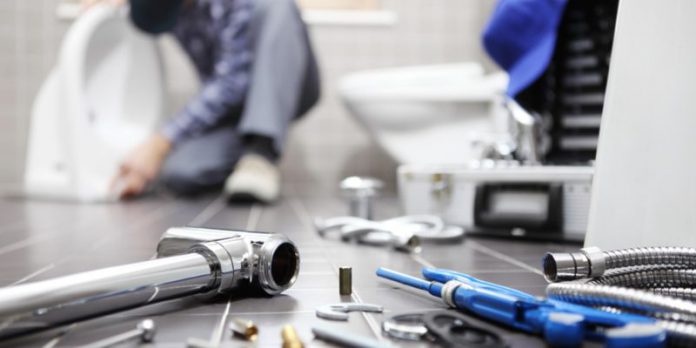Although different types of plumbing systems seem to work the same way, there is a huge difference between commercial and residential plumbing. As the name suggests, residential plumbing is all about the systems designed for homes, such as sewer lines, drain lines, water lines, water heaters, and other plumbing-related fixtures. On the other hand, commercial plumbing involves more complex piping and faucet installations. Plus, repairing these systems costs a lot more money. Let’s discuss some major differences between commercial and residential plumbing.
1. Daily usage
Unlike residential buildings, the use of plumbing systems in commercial buildings is a lot greater as more clients and employees share these systems. On the other hand, in the case of a residential setup, just one or two families depend on the same system. So, the cost of pipe and outlet installation is lower than commercial setups.
2. Size and durability
Since commercial buildings are shared by a lot of people, there is a need to install larger and more durable fixtures. This reduces the chances of system breakdown because of high pressure and strain. On the other hand, residential plumbing systems are relatively simpler and smaller. So, these systems may use low-grade pipe fixtures as they are used less frequently.
3. Complexity
Commercial structures, such as office buildings, medical centers, retail stores, and hotels have a lot of floors, sinks, toilets, and urinals. By contrast, residential buildings have relatively simple plumbing systems. Therefore, commercial plumbers should be experienced enough to understand complex building structures.
4. Efficiency
No matter how strong and reliable a system is, it is still prone to damage. Therefore, a commercial plumbing system is designed to offer a higher level of efficiency. This allows plumbers to fix a problem as soon as possible. Residential plumbing systems on the other hand are simple, which is why they don’t have strict efficiency requirements.
5. Damage probability
In commercial buildings, plumbing systems are more prone to damage due to a higher level of complexity. Meanwhile, residential buildings have smaller plumbing systems. So, their chances of failure are slim. Even if a few problems arise from time to time, they can be easily fixed.
In case of damage to the plumbing system in a commercial building, disasters can happen, especially if the structure has several floors in it. In other words, the probability of damage in the case of commercial buildings is quite high as compared to residential buildings.
6. Water heaters
Commercial heaters require larger storage tanks and tons of gas input levels in order to accommodate a lot of users. These tanks can hold up to 250 gallons of gas, while residential units carry no more than 100 gallons. So, the cost of commercial heaters is a lot higher than that of residential heaters.
7. Health issues
Since hundreds of thousands of people visit commercial buildings on a daily basis, there is a need to have strict healthcare laws in place. The idea is to make sure your plumbing system offers good hygiene standards.
By contrast, homes are easy to manage as these buildings don’t accommodate a lot of occupants. For easy management, commercial buildings have different types of plumbing fixtures that are easier to clean and drain off.
8. Work scope for the plumber
Plumbing jobs at commercial buildings are repetitive by nature as they are done on huge plants using industrial equipment. In the case of residential plumbing, repair or maintenance work involves regular 8-hour work.
Commercial plumbing is done at a time of the day when visitors are least disturbed. Sometimes, commercial plumbing is done during holidays or weekends.
9. Drainage services
It’s easier to drain residential plumbing due to the simplicity of the systems. In a multi-story building, drain lines are complex which adds to the drainage time. When these systems get clogged, plumbers have to check each unit one by one to clear the blockage.
In residential buildings, drainage issues are relatively easier to solve. Therefore, plumbers don’t need to spend a lot of time clearing the blockage.
10.Running water and dripping
In a residential building, detecting leakage is easier unlike in commercial buildings. On the other hand, homeowners find it easier to detect small leaks in the plumbing systems.
In commercial buildings, occupants tend to miss tiny leaks that may lead to dripping, water wastage, and high utility bills.
There you have it. These are just some common differences between residential plumbing and commercial plumbing. These differences clearly indicate that the right type of plumber should be hired to install and maintain plumbing systems in residential and commercial buildings.
If you’re looking for services of qualified, experienced, and dependable plumbers then don’t hesitate to reach out to professional plumbing companies that offer residential and commercial plumbing services like Mr. Morrow Plumbing. Expert plumbing services will ensure that all of your plumbing and drainage issues are taken care of by professional and trustworthy plumbers.















